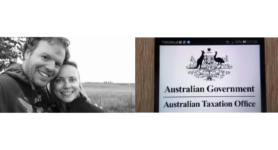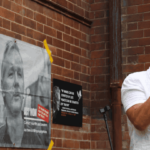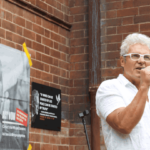Much of the Same: Federal Labor Continues to Criminally Prosecute Whistleblowers

The man who has accused the Australian Tax Office (ATO) of covering up serious maladministration will now face trial.
Richard Boyle, a former ATO Debt Collector is accused of 24 offences – including recording and disclosing protected information he collected – when he decided to bring systematic unlawful practices within the ATO to light.
The story so far
But let’s take a step back.
In June 2017, a directive from the management of the ATO was that standard garnishee notices – whereby banks are directed, by the ATO, to pay the ATO directly from people’s bank accounts – be applied across the board.
In response, Mr Boyle submitted a 27-page public interest disclosure under section 13 of the Public Service Act 1999 (Cth) in October 2017, advising the office that such a directive was unlawful.
When Mr Boyle received no response from the chain of command internally within the ATO, he referred the matter to the Inspector General of Taxation (IGT), making sure that he complied with confidentiality provisions by redacting parts of the information. No action was taken.
Finally, Mr Boyle went public with his concerns – to the media. Around the same time, he was charged with more than 60 criminal offences.
Legal bid for whistleblower immunity
In order to avoid criminal prosecution, Mr Boyle launched a bid for legal immunity.
The Corporations Act (part 9.4 AAA) protects a whistleblower against certain legal actions related to making the whistleblower disclosure, including:
- criminal prosecution (and the disclosure cannot be used against the whistleblower in a prosecution, unless the disclosure is false),
- civil litigation (such as for breach of an employment contract, duty of confidentiality, or other contractual obligation), or
- administrative action (including disciplinary action).
It further states that If you are the subject of an action for making a whistleblower disclosure, you may rely on this protection in your defence.
This protection does not grant immunity to a whistleblower for any misconduct that they were involved in, that has been revealed under public interest disclosure.
Mr Boyle’s case for immunity has been before the South Australian Supreme Court and was considered the first ‘serious’ test of whistleblower protections in Australia which have long been criticised as convoluted and ‘weak’.
So much for ‘whistleblower protection’
Current Attorney general Mark Dreyfus has promised to review whistleblower protections, but after nearly a year in the role, so far no action has been taken. Mr Dreyfus also failed to use his powers to stop the case proceeding against Mr Boyle.
SA Supreme Court Judge Liesl Kudelka this week rejected Mr Boyle’s application for immunity on 23 charges. The reasons for the decision are not publicly available – they are subject to an interim suppression order at the request of the Commonwealth.
Since Mr Boyle’s claims were made public a number of follow-up reviews have confirmed that his allegations of aggressive debt-recovery practices at the ATO were valid at the time of his complaint and subsequent disclosure.
The small business ombudsman has publicly said that the agency’s then treatment of small businesses was “crippling”.
A Senate report later found that the ATO did a “superficial” investigation into Mr Boyle’s public interest disclosure about the ATO misusing its powers against small businesses.
The Commonwealth Director of Public Prosecutions (CDPP) had reduced the charges against Mr Boyle from 66 to 24, however he still faces the prospect of decades behind bars if found guilty.
Calls to stop the criminal prosecution fall on deaf ears
There’s growing sentiment in Australia that the Government’s continued prosecution of people like Richard Boyle and David McBride signal a country culture that’s not one to be proud of.
Individuals need to be able to speak what they believe is the truth without fear of retribution – without transparency we have no democracy.
Instead, in Australia, the Federal Government has racked up a litigation bill (funded by taxpayers) reportedly worth more than $7m, with the bulk of that money spent on the prosecution against Bernard Collaery which has now finally been abandoned.
These prosecutions were, of course, initiated by the previous Government and there is now significant pressure mounting on the Albanese Government to discontinue them all.
With the Robodebt inquiry currently front and centre – even though it was decided long ago to be unlawful – we have to question whether there is ever going to be real change in Australia.
Both Richard Boyle and David McBride have been exonerated to a significant degree by the evidence investigated and collected and presented by other parties after their whistleblowing. Why does the Government continue to prosecute them, particularly when most Australians would argue there’s not only a moral case against doing so, but a fiduciary responsibility to take into consideration – are these prosecutions really the best use of taxpayer funds and in the best interests of Australians?






